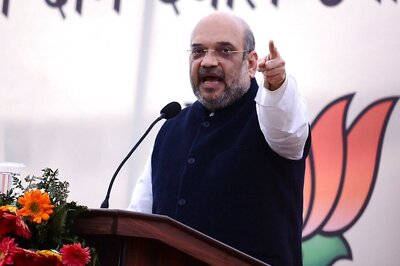
views
The third quarter of the financial year 2020-21 is set to bring with it several policy changes across sectors, which are likely to impact us all directly or indirectly. It is important for citizens to know what is in store for them in the coming days. So, we bring you a comprehensive list of new rules/policy changes that will come into effect from October 1, 2020.
1. Motor Vehicle rules
The Union Ministry of Road Transport and Highways has made some amendments in the Central Motor Vehicle Rules, 1989 for better enforcement of traffic rules. Starting from October 1, people will not be required to carry hard copies of documents like Driving License, RC, and Insurance etc. These documents would be validated electronically and people can use apps and portals like DigiLocker and m-parivahan to store the soft copies of these documents.
The ministry is also bringing a new rule regarding using mobile phones while driving. Drivers will be permitted to use smartphones for navigation without disturbing their concentration while driving. However, talking on phone would be punishable by a fine of Rs 1000 to Rs 5000.
2. Food regulations by FSSAI
FSSAI will implement new rules from October 1, 2020 to ensure food standard and safety. According to this, the practice of blending edible vegetable oil with mustard oil by the manufacturers will be prohibited. This is being done to facilitate sale of pure mustard oil for domestic purposes.
Moreover, sweet sellers will now be required to display ‘Best Before Date’ on the containers holding non-packaged or loose sweets.
3. Health insurance rules
According to the new health insurance rules which kick in from October 1, 2020, the cost of premium health services is expected to hike. These rules have been framed taking the situation arising out of Covid-19 into account. Though Covid-19 will be included in the premium cover, as many as 17 permanent illnesses would be left out. Experts believe the premium rates could raise between 5 and 20 per cent.
4. Reduction in minimum balance in SBI
The minimum required account balance in the State Bank of India for metro cities, which was earlier Rs 5,000 will be reduced to Rs 3,000. Also, the charges for NEFT transactions up to Rs 10,000 will be Rs 10, while for transactions over Rs 2 lakhs would attract Rs 20 fees.
5. LPG connection
New LPG connection under Ujjwala Yojna will not be free anymore. In April, the cabinet had extended the scheme till the end of September.
6. Buying Television
The prices of TV sets are expected to rise as an import duty of 5 per cent will be levied on open cell panels from October 1.
7. Digital payment
In order to make digital payments through credit and debit cards safer, customers will be given the option to opt-in and opt-out various services like online, contactless and international transactions. They will be able to modify their spend limits. Customers can also disable the NFC feature on their cards.
8. TCS for foreign remittances
Starting from October 1, 2020, foreign remittances will attract a 5 per cent tax collected at source (TCS). So, now people looking to book a tour package overseas, they will have to bear this extra tax burden. This rule has been brought in to deter people from transferring funds abroad but evading filing income tax returns for it.




















Comments
0 comment